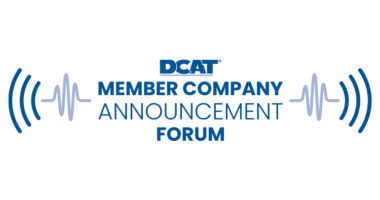Baxter, Shire Move To Close $32 Billion Merger
The shareholders of Baxalta and Shire have approved the companies’ $32 billion merger with the deal now expected to close shortly. The move creates a specialty biopharmaceutical company with a focus in rare diseases. So what will a combined Baxalta and Shire be? DCAT Value Chain Insights (VCI) takes an inside look.
The combined portfolio will have an expanded range of therapeutic areas with more than 60 programs in development, including over 50 that will address rare diseases and newly approved Baxalta products. Shire anticipates more than 30 recent and planned product launches from the combined pipeline, contributing approximately $5 billion in annual revenues by 2020.
Inside the deal
The shareholders of Baxalta and Shire approved the combination of the two companies in a deal valued at $32 billion. The companies had entered into a merger agreement in January 2016 under which Shire was to acquire Baxalta for $18.00 in cash and either 0.1482 Shire ADSs or 0.4446 Shire Ordinary shares per Baxalta share. The deal now is expected to close approximately June 3, 2016, subject to customary closing conditions.
The combination of Baxalta and Shire will create a specialty pharmaceutical company with a focus on rare diseases with a focus on the following areas: hematology; immunology; neuroscience; lysosomal storage diseases; gastrointestinal / endocrine; and hereditary angioedema (HAE). The combined company will also possess a growing franchise in oncology, with approved products and innovative compounds in development, as well as a late-stage ophthalmics pipeline.
The combined portfolio will have an expanded range of therapeutic areas with more than 60 programs in development, including over 50 that will address rare diseases and newly approved Baxalta products. Shire anticipates more than 30 recent and planned product launches from the combined pipeline, contributing approximately $5 billion in annual revenues by 2020. The combined company will benefit from expanded geographic reach across more than 100 countries.
At the time of the merger announcement, Shire anticipated that it will realize more than $500 million in annual cost synergies (expected to be achieved within the first three years post-closing). These annual cost synergies will be achieved by increasing efficiencies, leveraging the scale of the combined business, aligning to Shire’s lean operating model, and optimizing the combined R&D portfolio. Further, Shire expects to generate additional revenue synergies and a combined non-GAAP effective tax rate of 16-17% by 2017.
The combined company
In seeking to acquire Baxalta, Shire is moving forward with a strategic focus formed in 2013, when the company repositioned itself as a specialty biopharmaceutical company with a primary focus on specialized and rare diseases. The company named a new CEO, Flemming Ornskov, on April 30, 2013. Ornsko set forth a new strategic focus for Shire, which included integrating three separate segments (Specialty Pharmaceuticals, Human Genetic Therapies, and Regenerative Medicine) into four business units based on the therapeutic area of the company’s in-line products (rare disease, neuroscience, gastrointestinal, and internal medicine) and also in ophthalmics to support the development of Shire’s ophthalmic pipeline candidate as well as created a single R&D unit with a focus on rare diseases. In November 2013, Shire announced that its preclinical pipeline would focus only on rare diseases, and it discontinued other programs that were not within that purview.
Each company will contribute to the product positions of the combined company. Baxalta has a well-established hematology portfolio, which includes Adynovate (antihemophilic factor (recombinant), PEGylated, an extended circulating half-life recombinant factor VIII (rFVIII) treatment for hemophilia A which is approved in the US and is focused on introducing new treatments for hemophilia and other rare chronic bleeding disorders. Baxalta is also contributing a portfolio of immunoglobulin (IG) products, most notably the recently launched Hyqvia, a subcutaneous IG treatment for patients with primary immunodeficiency, as well as a pipeline of products .
In neuroscience, Shire has a focus on treatments for attention deficit hyperactivity disorder (ADHD), which includes a new indication for Vyvanse (lisdexamfetamine dimesylate) for adults with moderate-to-severe binge eating disorder. Shire also brings products to treat lysosomal storage diseases, including Vpriv for long-term enzyme replacement therapy (ERT) for patients with Type 1 Gaucher disease, Elaprase for patients with Hunter syndrome (Mucopolysaccharidosis II, MPS II), and Replagal for long-term ERT in patients with a confirmed diagnosis of Fabry disease.
Shire’s gastrointestinal / endocrine portfolio is built on its 5-ASA products, Lialda for the treatment of mild to moderate ulcerative colitis, and Pentasa, for the treatment of mildly to moderately active ulcerative colitis, and recent additions of Gattex/Revestive for adults with short bowel syndrome who are dependent on parenteral support, and Natpara as an adjunct to calcium and vitamin D to control hypocalcemia in patients with hypoparathyroidism. In HAE, Shire has prophylactic and acute therapies, Cinryze and Firazyr, respectively, and through its acquisition of Dyax, a Phase III, potentially prophylactic therapy. Shire is focused on building its franchise ophthalmology with the 2016 projected launch of Lifitegrast, contingent upon regulatory approval, for dry eye disease; SHP640 for infectious conjunctivitis entering Phase III trials in 2016, and SHP607 for the treatment of retinopathy of prematurity, generating results from its Phase III trials which are expected in 2016. In oncology, Shire’s portfolio includes Oncaspar (pegaspargase), a marketed biologic treatment for acute lymphocytic leukemia, and late-stage, partnered products such as pacritinib, an investigational oral kinase inhibitor for the treatment of patients with myelofibrosis, and Onivyde (irinotecan liposome injection) for the treatment of patients with metastatic pancreatic cancer.
On the manufacturing front, Shire announced earlier this year that it plans to expand its global biotechnology manufacturing capacity over the next four years by investing $400 million in Ireland. The company will create a biologics manufacturing campus, which it expects will lead to the creation of approximately 400 permanent jobs on a 120-acre site at Piercetown, County Meath. Construction of the new site will begin in mid-2016 with the site expected to be operational by mid-2019.
Shire’s current manufacturing facilities are in Cambridge and Lexington Massachusetts. The Cambridge site also includes warehouse facilities. The Lexington site also includes laboratories, warehousing, and distribution operations. The company also has a warehousing and distribution facility in Florence, Kentucky, a warehousing facility in North Reading, Massachusetts, and laboratory and office space in Sao Paulo, Brazil.
Baxalta, which was spun off from Baxter as a stand-alone biopharmaceutical company in 2015, has enhanced its product positions through targeted acquisitions and collaborations. In March 2015, Baxalta acquired SuppreMol GmbH, a biopharmaceutical company based in Germany with an early-stage development portfolio of treatment options for autoimmune and allergic diseases, focusing on the modulation of Fc receptor signaling pathways, an immune target that could have broad applications in autoimmune disorders. SuppreMol’s pipeline includes its lead candidate, SM101, an investigational immunoregulatory treatment that has completed Phase IIa studies in idiopathic thrombocytopenic purpura (ITP), a disorder causing low platelet levels and systemic lupus erythematosus (SLE), a disorder in which the immune system attacks healthy tissue.
In June 2014, Baxalta acquired AesRx, LLC , obtaining AesRx’s program related to the development and commercialization of treatments for sickle cell disease, including BAX 555 (f/k/a Aes-103), an investigational prophylactic treatment for SCD currently in a Phase II clinical trial as part of an ongoing collaboration with the National Institute of Health’ National Center for Advancing Translational Sciences through its Therapeutics for Rare and Neglected Diseases program. In April 2014, Baxalta acquired Chatham Therapeutics, gaining broad access and intellectual property rights to its gene-therapy platform for the treatment of hemophilia B (BAX 335, currently in Phase I clinic trials) as well as a preclinical hemophilia A program, and the potential future application to additional hemophilia treatments.
Baxalta also has several pacts in biosimiars. It has a collaboration with Coherus BioSciences, Inc. to develop and commercialize CHS-0214/BAX 2200, a biosimilar product candidate for Enbrel (etanercept), indicated for the treatment of certain autoimmune deficiencies, in Europe, Canada, Brazil, and other markets. Baxalta is also collaborating with Momenta Pharmaceuticals on the development and commercialization of M923/BAX 2923, a biosimilar product candidate for Humira (adalimumab).
On the innovator side. Baxalta acquired rights under a worldwide licensing agreement with CTI BioPharma Corp. (f/k/a Cell Therapeutics, Inc.) to develop and commercialize pacritinib (BAX 2201), an investigational JAK2/FLT3 inhibitor that recently completed Phase III trials for myelofibrosis, a chronic, malignant bone marrow disorder, and is currently in Phase II trials for acute myeloid leukemia. Baxalta has exclusive commercialization rights for all indications outside the United States, and will jointly commercialize pacritinib in the United States with CTI BioPharma. Positive top-line results from the Phase III trials were announced in March 2015. In 2013, Baxalta acquired the investigational hemophilia compound and related assets from Inspiration BioPharmaceuticals, Inc. (Inspiration), as well as certain other assets, including manufacturing operations, from Ipsen Pharma S.A.S. in conjunction with Inspiration’s bankruptcy proceedings.
Another pact involves Hyqvia, a product consisting of human normal immunoglobulin (IG) and recombinant human hyaluronidase (licensed from Halozyme Therapeutics, Inc. in 2007). Hyqvia was approved in Europe in 2013 for adults with PID syndromes and myeloma or chronic lymphocytic leukemia (CLL) with severe secondary hypogammaglobulinemia and recurrent infections, and also in the United States in 2014 for adults with PID.




